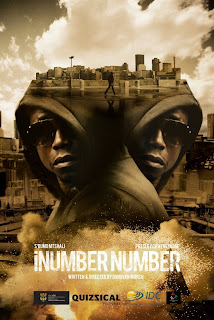Or The Life of Adèle: chapters
1 and 2, as it is known in France, the Cannes Film Festival Palm D’Or
winner is an intimate and intense sexual awakening story of a young student named
Adèle, as she becomes the muse, inspiration and sexual partner of a budding new
gay artist Emma, who is on the verge of being discovered in the art world.
This is very much a love story where the physical sensual love
making is central to the story. While exploring and coming to terms with her
sexuality, Adèle experiments with various people who come into her life, when she
begins to suspect she may be attracted to women.
Filmed in tight close-ups, the story plays out on Adèle’s
face and those of the people around her as she goes through an emotional
journey of self-discovery. One woman in particular becomes an immediate and
powerful attraction that could be termed ‘love at first sight’.
Surprisingly honest in their performances by the two lead
actresses, especially Greek/French actress Adèle Exarchopoulos as Adèle, are so
natural and subtle, we immediately sense that we are getting a peak into a very
private and personal inner life of a young teen as she deals with her emotions.
Adèle is an attractive young woman with a vacant aimless expression
that seems to draw in the viewer. She appears
to float through life without any plan and is happy to just have someone in her
life that will fulfill her sexual needs.
Be aware, the film features some extremely explicit sexual content.
French/Tunisian director Abdellatif Kechiche, who also directed the excellent
award winning film The Secret of the
Grain (2007), doesn’t shy away from showing us the Kama sutra of lesbian
love making full on, leaving little to the imagination.
Based on a graphic novel and told completely from Adèle’s
perspective, we the audience feel as if we are living the experiences with Adèle
as the camera follows her documentary style and we slowly become immersed in her
emotionally tumultuous life while she navigates teenage sex and high school
peer pressure.
The camera technique used can sometime be a little
disorienting as we are pressed up close to every nuanced emotion playing on Adèle’s
facial features with minimum amounts of the environments shown in which she
finds herself.
We follow Adèle in a passionate relationship with Emma,
played by Léa Seydoux, an older artistic woman, who exposes her to the fine arts
world as they are influenced by prominent literary and philosophical works. Playing
out over a number of years, we see the relationship as it goes through several
stages to its emotional conclusion.
Steven Spielberg commented about the jury members’ unanimous
decision to award the film top honors at the Cannes film festival that they
were all under the spell of the film and its two actresses. And there is
definitely a mesmerizing quality about the film and the performances that draws
one in and keeps our attention as we are witness to a girl’s unspoken diary of
inner feelings.
Blue is the Warmest
Color may not be for everyone and is considered quite controversial, but it
may be one of the most enthralling love stories in recent years.
JP































